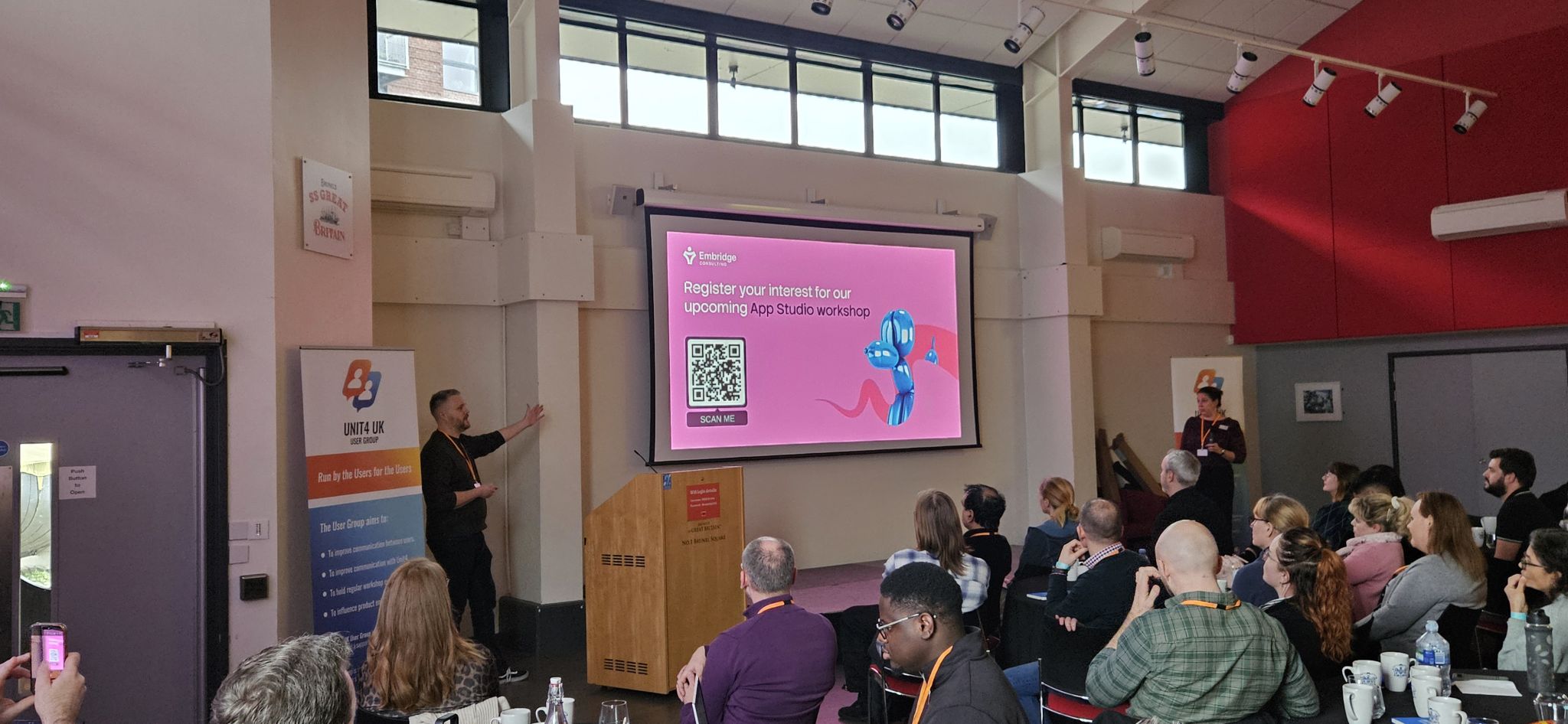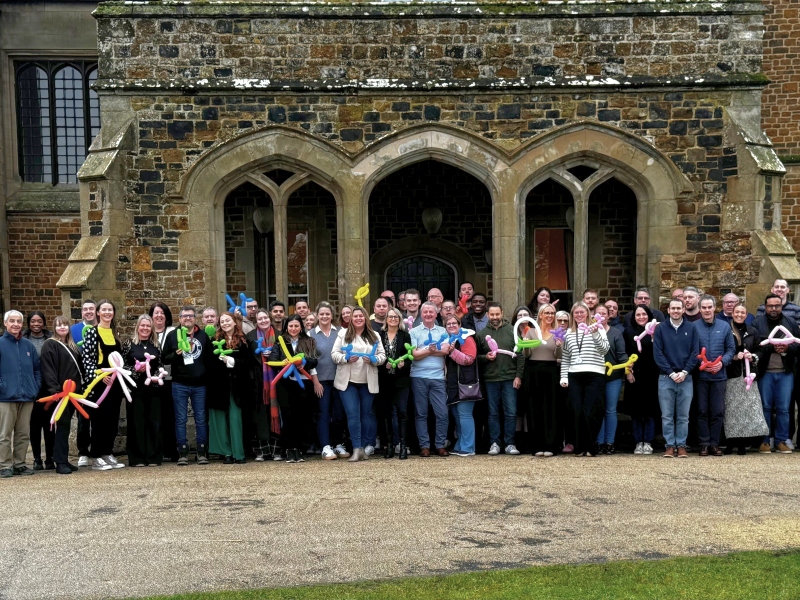How App Studio and APIs are shaping the future of Unit4
How to succeed in the Business Case Phase of council reform
ArticleAugust 20256 min

Annabelle Fox

Across England, councils are undergoing one of the most significant changes in recent decades with local government reform. As authorities move towards unitary models, the pressure is on to balance continuity of service with the delivery of real, meaningful transformation. The journey isn’t simple, but it can start with clarity and structure, and getting the early phase right is essential. Local government reform typically unfolds in three distinct phases: the Business Case Phase, where clarity and confidence are built; the Shadow Authority Phase, where processes and systems are aligned; and the New Unitary Phase, where transformation is embedded and optimised. Each stage brings its own challenges, but one truth remains: the councils that succeed are those who invest early in the right foundations. From data and systems to people and culture, lasting reform starts with getting the essentials right before rushing to restructure.

The real work starts before unitary day one
When you reform local government, the most critical changes don’t begin when the new structure is announced, they begin long before that. In the early phase, councils must build the foundation for business transformation that can scale and succeed over time. This means going beyond surface-level planning, and it means asking the difficult questions early.
The first questions to address:
- How reliable is your financial data quality management?
- Where are the gaps in your data quality framework?
- What legacy systems will hold you back, and how can they be phased out without breaking service continuity?
Without answers to these, transformation plans risk being built on unstable ground.
Why data quality is non-negotiable
According to the Local Government Association, 75% of councils say poor data quality is a significant challenge for their organisation. The truth is, poor data quality undermines even the most well-funded reform programmes. Inconsistent records, incompatible formats, and outdated legacy system software all make it harder to model change, share information across authorities, and report on progress. Councils must begin with a clear understanding of the current data landscape. That means using the right data quality tools to cleanse, standardise and validate what already exists, and identifying what needs to be rebuilt entirely. Without good data, business cases become guesswork, and leadership teams are left steering blind.
Try this quick exercise: Start your reform by mapping your data confidence zones
Start by listing your core service areas and evaluate each against these three key questions:
1. Do we trust the data we have in this area?
2. Can we easily report on it across merging authorities?
3. Is the data clean, current, and complete?
This simple exercise will quickly highlight your biggest risks and uncover your greatest opportunities.
Getting to grips with your technology stack
One of the biggest hurdles to reform is a fragmented technology stack. Many councils still rely on legacy software systems – platforms that are outdated, difficult to integrate, and expensive to maintain. But what is a legacy system, really? In this context, it’s any technology that can’t evolve with your future service model. Successful reform demands a clear roadmap for consolidating or replacing these systems. It’s not just about procurement, it’s about shaping a modern, scalable stack that can support long-term digital business transformation. Knowing what a technology stack is, how each component functions, and where dependencies exist is key to avoiding costly surprises later.
Leadership alignment and cultural readiness
Too often, reform is treated as a purely structural or technical exercise. In reality, successful transformation is deeply human and depends heavily on people. Without early and genuine alignment across leadership teams, even the best-planned initiatives risk stalling before they gain momentum. Leadership alignment ensures that everyone shares a common vision, understands their roles, and is committed to driving change collaboratively.
Cultural readiness is equally critical. Councils undergoing reform often face differing organisational cultures, varying ways of working, and sometimes resistance rooted in uncertainty or fear of change. Left unaddressed, these cultural differences can slow progress, create confusion, and reduce staff morale. Establishing clear governance models, clarifying decision-making authority, and fostering open, transparent communication help build trust and minimise resistance.
By focusing on these elements early, councils can reduce uncertainty and change fatigue that often quietly undermine progress during long transition periods. This approach helps ensure that all stakeholders are moving confidently in the same direction, setting a strong foundation for sustainable transformation and lasting success.
Successful reform starts with understanding, not quick fixes
There’s often pressure to jump straight into solutions – to restructure fast, implement new systems, or roll out sweeping changes to meet ambitious deadlines. But one of the most powerful moves a council can make is to pause and assess. What’s working? What’s broken? What needs redesigning? This period of reflection and structured discovery isn’t a delay; it’s a strategic investment. It allows councils to surface hidden risks, clarify priorities, and build a shared understanding across leadership and delivery teams.
This is the time when many councils turn to experienced business transformation partners for support. Having expert guidance can help provide objective insights and proven approaches, making it easier to navigate complexity and make informed, lasting decisions. Long-term success starts with smart, thoughtful planning, rather than rushed fixes.
The right business transformation partner matters
At Embridge Consulting, we’ve supported local government transformation for over a decade – not just with advice, but with hands-on delivery. We understand that reform isn’t just structural or technical; it’s human, political, and deeply personal. That’s why we bring a people-first approach to change, helping councils move forward with confidence and control.
From early-stage discovery and data audits to system mapping, process redesign, and long-term adoption, we partner with you through every phase – not as distant consultants, but as embedded collaborators. We’re tech-agnostic, outcome-focused, and people-first. We won’t prescribe a one-size-fits-all answer, because successful reform demands tailored, practical support built on real-world experience.
Reform isn’t easy – but with the right partner, it becomes possible, purposeful, and future-ready.
Preparing your council for successful unitary authority transformation
At Embridge, we understand that local government reform is complex and multifaceted. That’s why we’ve developed the Unitary Readiness Framework, a free strategic playbook designed to help councils navigate the challenges of transition with confidence and clarity. Whether it’s addressing data integrity, technology consolidation, process redesign, cultural alignment, service continuity, governance, or financial control, this framework breaks down the reform journey into clear, manageable phases.
The first whitepaper in our Unitary Readiness Framework series is now available to download, helping you build a future-ready authority that doesn’t just survive reform, but thrives in the new era of local government. Over the coming weeks, we’ll be sharing more insights, practical tools, and expert guidance to equip councils for successful transformation.
DOWNLOAD YOUR FREE COPY TODAY
Ready to discuss how your council can prepare? Chat with us today to start the conversation or connect with us on LinkedIn for ongoing practical insights and expert advice.



